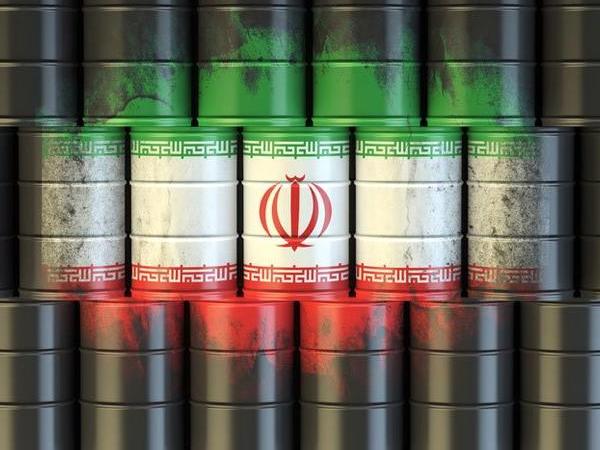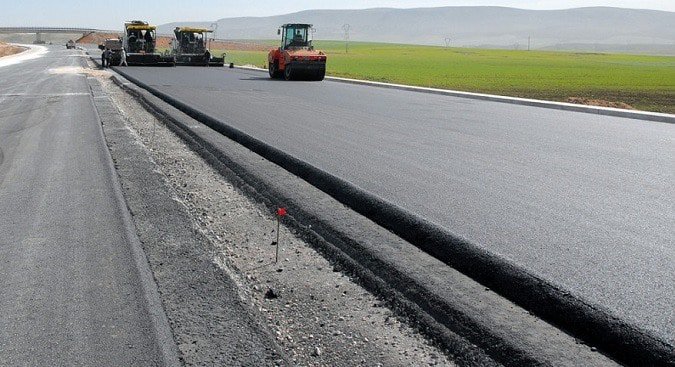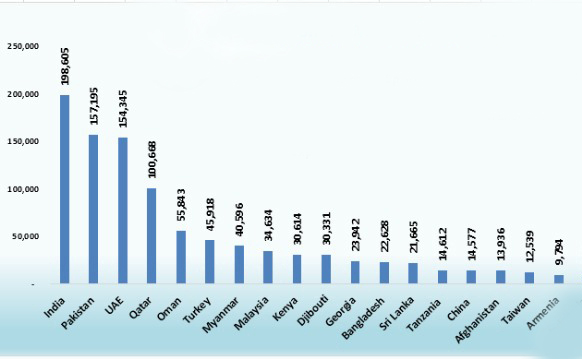
Bitumen (Asphalt)
Bitumen is a low-grade of crude oil which is composed of complex, heavy hydrocarbons. In an oil reservoir, bitumen is a thick, viscous fluid and must be extracted from the ground. When extracting it, a lot of heat and effort must be used to upgrade it to a better product. Although bitumen is hard to extract from the ground, it can bubble naturally to the surface of the Earth in petroleum seeps. These seeps are places where fossil fuels and petroleum products leak out of the Earth instead of being trapped deep below the ground. In these seeps, bitumen, asphalt, and tar bubble up into pools. Additionally, bitumen is the main fossil fuel component of oil sands. When bitumen combines with asphaltines a solid is formed that is useful for paving roads.
Where Bitumen Is Used ?
Most refined bitumen is used in the construction industry. Mainly, it serves its use in paving and roofing applications. 85% of all bitumen is used as a binder in asphalt for roads, runways, parking lots, and foot paths. Gravel and crushed rock are mixed with thick bitumen, holding it together and it is then applied to roadways. 10% of the bitumen used worldwide is used in the roofing industry as its waterproofing qualities help make roofs function well. 5% of bitumen is used for sealing and insulating purposes in various building materials such as carpet tile backing and paint.[3]
In addition to these main uses, bitumen also has many minor uses. Other examples are soundproofing, explosives, mildew protection, a binder in briquettes, a backing to mirrors, shoe soles, fence post coating and soil stabilization.

Why to Use Bitumen In Road Construction?
Bitumen is used in road construction due to various properties and advantages it has over other pavement construction materials. Bitumen gain certain unique properties that are inbuilt in it during its manufacture.The reason behind the significant application of bitumen in flexible pavements are explained below:
- Production of Bitumen is economical
Bitumen is a by-product of crude oil distillation process. Crude oil itself is a composition of hydrocarbons. The primary products that are available are the petrol, diesel, high octane fuels and gasoline. When these fuels are refined from the crude oil, the bitumen is left behind. Further treatment of by-product, to make it free from impurities give pure bitumen. As the primary product demand is of utmost importance to the society, the bitumen as a by-product has survival for long. This by product is utilized as a new construction material, without going for any other new resource.
- Physical and Rheological Properties of Bitumen bring Versatility
The physical and the chemical properties of Bitumen are found to be a function of load level, temperature and the duration of loading. It is a thermoplastic and viscoelastic material. These dependencies make us to truly access the traffic on the road so that a bitumen mix properties can be varied based on the stress levels calculated. This versatility of bitumen results in a large variety of bitumen mix, based on the road application.
- The Melting Point of Bitumen is low
It is highly appreciable about the fact that bitumen has a favorable melting point, that helps in both surface dressing and wearing resistance with ease. The melting point of the bitumen should not be too high, that it can be melted easily during laying the pavement. At the same time, bitumen has a melting point, which would not let the already casted road pave to melt and deform under high temperatures.In areas of high temperatures, along with this quality of bitumen, the aggregate composition helps to cover up the effect of large temperature.
- Bitumen can undergo Recycling
As the melting point of bitumen is favorable, it can be melted back to its original state. This is called as asphalt recycling process. The torn-up asphalt pieces are taken up to the recycling plant, instead of sending them to landfills. This recycled mix can be reused. If necessary, the old bitumen is mixed with new bitumen and new aggregates to make the mix live again.
- Bitumen gain Adhesive Nature
As explained in the production of bitumen, it is free from hydrocarbon and hence not toxic. The by product is refined to maximum to get rid of organic materials and impurities.The bitumen has a highly adhesive nature, which keeps the materials in the road mix bind together under strong bonds. These become stronger when the mix is set i.e. ready for vehicle movement.
- Bitumen has Color Variety
The traditional bitumen is black in color. This is because the dense organic material within bitumen is black in color. Now, when certain pigments are added to bitumen, the color of our choice can be obtained. These are colored bitumen.It is costly than the normal colored bitumen. The disadvantage of colored bitumen is that it requires more chemical additives and materials.
Iran Export Of Bitumen
Iran’s bitumen is one of the highest qualities in the world and at the present, Iran is the first exporter of bitumen in the Middle East and the fourth largest exporter in the world. Iran exported 2.38 million tons of bitumen worth $561 million during the first months of the 2018. UAE, India, Qatar, Kenya, Myanmar, Bangladesh, Turkey, Oman, Iraq and Sri Lanka are major customers of Iranian bitumen .




